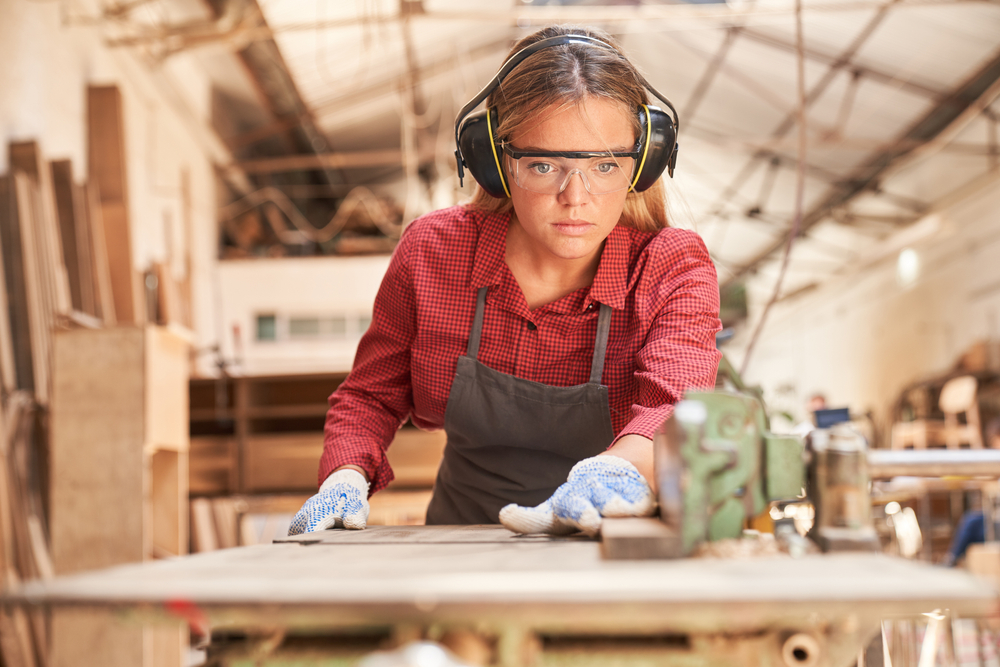
Whether you’re attending concerts, at work, or doing some yard work, hearing protection is indispensable in keeping your ears safe against harmful noise levels. However, you could be left exposed to potential risks if any one of several potential factors interferes with your hearing protection’s effectiveness. In order to understand and successfully maximize the advantages of your ear protection, it’s crucial to understand these issues.
Common reasons why hearing protection falters
Unexpected challenges will arise even when you maintain best practices. You wear your earmuffs diligently at work, use earplugs at concerts, and stay away from noisy situations whenever you can. Yet, certain variables can still interfere with your hearing protection’s efficiency. Fortunately, you can ensure the protection of your hearing by becoming aware of these common issues and making educated adjustments.
1. Selecting the wrong hearing protection for the circumstance
Hearing protection isn’t one-size-fits-all, and choosing the wrong type for a given setting can decrease its effectiveness.
In general, hearing protection falls into two main categories:
- Earmuffs: Larger, headphone-like device that goes over the whole ear.
- Earplugs: Little foam or rubber plugs that insert tightly into the ear canal.
There is an optimal type for each situation:
- Settings with a continual noise threshold, like a factory floor or the cabin of an airliner, are the ideal times to use earplugs.
- Earmuffs are better for situations with intermittent noise, such as a construction site where machinery starts and stops constantly.
If you’re in a quiet setting and need to temporarily remove your hearing protection, earmuffs are easier to handle. Disposable earplugs, on the other hand, can leave you vulnerable to hearing damage because they can be easily misplaced. Picking the right hearing protection for your requirements is the first step toward protecting your hearing effectively.
2. Individual anatomy impacts fit and effectiveness
Everybody’s ears are unique, which means not all hearing protection devices will fit everyone equally well. Basic earplugs and earmuffs are usually designed for average dimensions, but your ear anatomy may require a more customized solution.
- Larger ear structures: Earmuffs may be uncomfortable if your ears are larger than average causing gaps in the seal.
- Smaller ear canals: If you have tight ear canals, standard-sized earplugs may not create a proper seal, decreasing their noise-blocking abilities.
If your hearing protection doesn’t fit properly, you could become frustrated and decide to discontinue using them altogether which can imperil your hearing. Think about buying custom-fitted earplugs or professionally fitted earmuffs if you spend a lot of time in loud settings. Deciding to go with a more customized approach will provide you with increased comfort and effectiveness, keeping your hearing safe in any situation.
3. Failing to maintain or replace hearing protection
Like any piece of gear, hearing protection devices need maintenance to continue to be effective. Wear and tear, improper cleaning, and missing replacement schedules can all jeopardize their ability to protect your ears.
The following are a number of tips on how to care for hearing protection:
- Replace Cushions: Over time, earmuff cushions can lose their pliability. In order to maintain a tight seal, replace the cushions when necessary.
- Inspect for Damage: Inspect the elastic band on earmuffs frequently. A loose or stretched band can decrease their snug fit, lowering their noise-blocking ability.
- Clean Properly: Earplugs and earmuffs are exposed to earwax and other debris, which can accumulate over time. Clean them regularly using manufacturer-recommended methods to ensure cleanliness without damaging the material.
Neglecting these simple maintenance duties can leave your hearing protection less effective or even unusable. Regular maintenance is crucial to extend their lifespan and ensure reliable performance.
What is the role of a hearing specialist?
Make an appointment with us for an assessment if you think that your ear protection might not be getting the job done. We can examine your present devices, recommend alternatives, and even provide custom solutions tailored to your particular needs.
Safeguarding your hearing is a lifelong commitment, and it’s worth the effort to make sure you’re using the best tools for the job. You can protect and preserve your hearing for many years by addressing these common challenges.